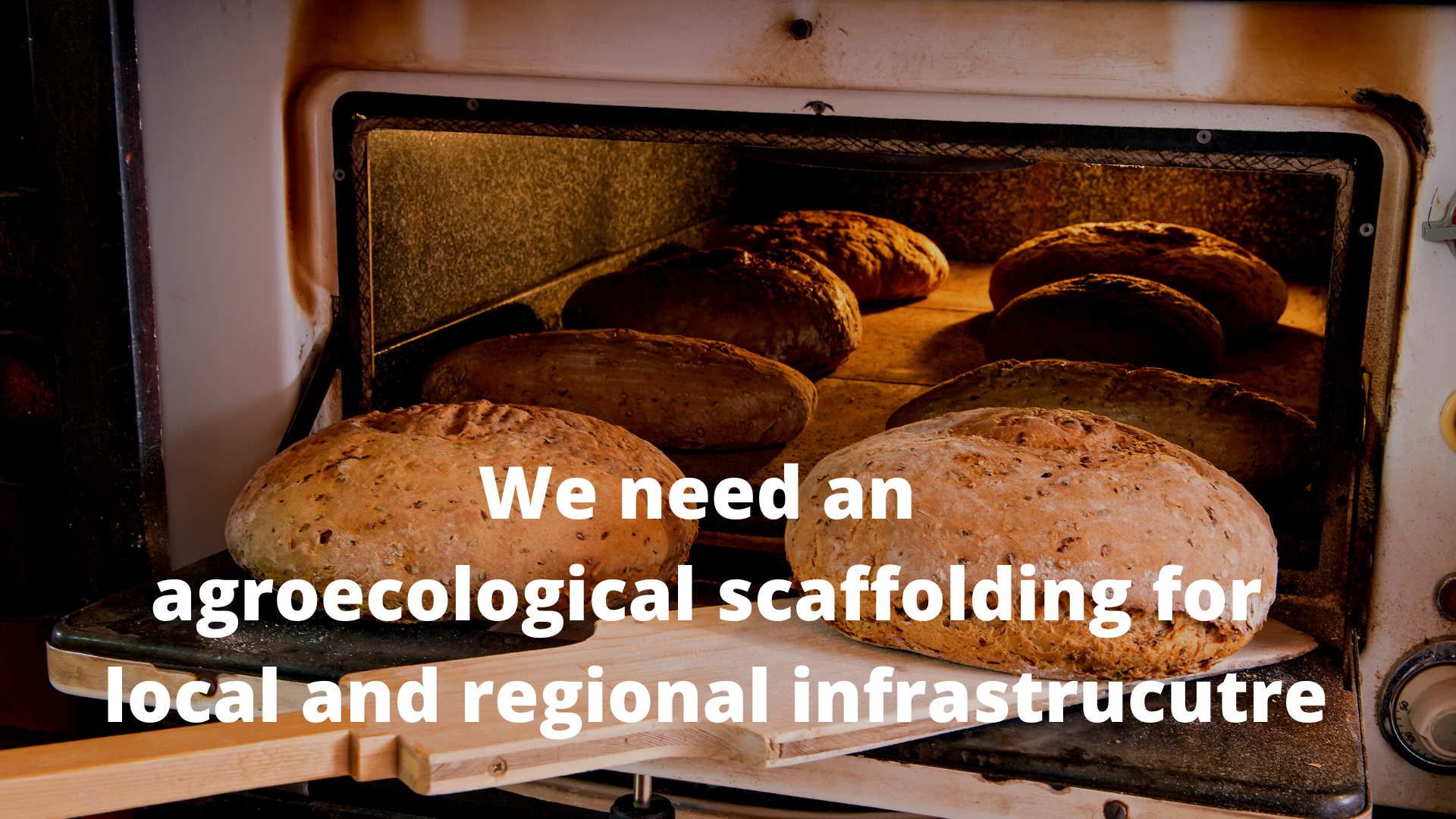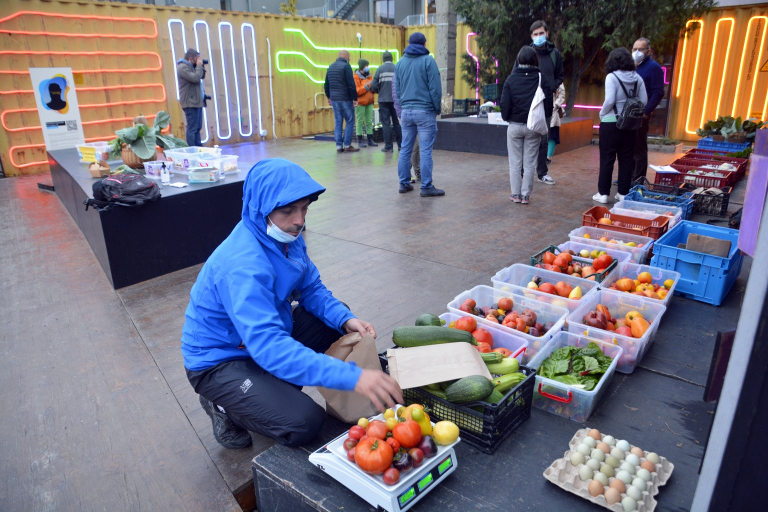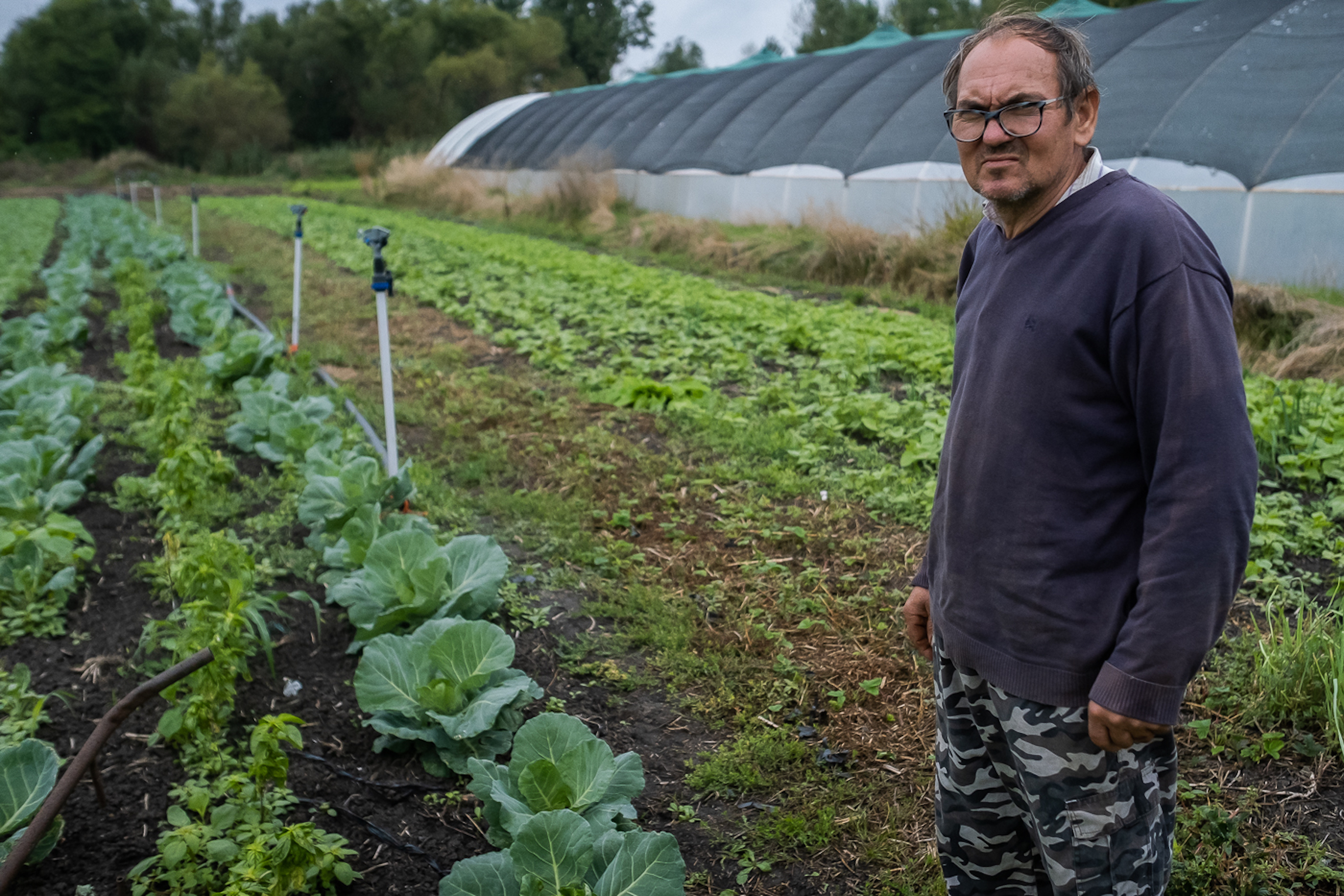Ed. note: This article first appeared on ARC2020.eu. ARC2020 is a platform for agri-food and rural actors working towards better food, farming, and rural policies for Europe.
Community Supported Agriculure (CSA) can transform the way producers and consumers relate to food as a local commons. In 2008, the Romanian network for Community Supported Agriculture farms (ASAT) set out to open the eyes of urban consumers to the benefits of small-scale agroecological production and develop CSA partnerships.
Today we share the story of ASAT as it appears in ‘Rural Europe Takes Action – No more business as usual‘. From this story and others, Rural Europe Takes Action draws action points for policymakers on building an agroecological scaffolding for local and regional infrastructure. Below you find a summary of those action points followed by ASAT co-founder Brînduşa Bîrhală’s account of the development of the network, barriers to local rural-urban food economies in Romania and measures that would help overcome them.
The Rural Europe Takes Action e-book is available here. To order a hardcopy, contact info@forum-synergies.eu.
Policy Action

We need an agroecological scaffolding for local and regional infrastructure.
Infrastructure and services must be closer and more adapted to the real needs and talents of rural people. The initiatives here show the importance of the commons as we build from networks to grandchildren-proof frameworks. Relevant regulatory environments need to be adapted to small-scale business and local economies. Specific support must be provided for small-scale farming, processing, short supply chains, and knowledge sharing. Community-centred values must be at the heart of all infrastructure and services, digital or otherwise.
An ASAT producer with his crop of vegetables. Photograph courtesy of ASAT.
CSA and the Building of a Food Commons
By Brîndușa Bîrhala, co-founder of ASAT
The Romanian network for Community Supported Agriculture farms (ASAT) began as a pilot project, with the goal to embed the concept and practice of Community Supported Agriculture in the EU’s newest member state. ASAT blossomed into a formal association in 2014.
At grassroots level, members of ASAT work tirelessly to mobilise urban consumers around small-scale food producers – emphasising the need for solidarity economy models, and encouraging and maintaining local economy partnerships. Within our network, new producers are provided training in the CSA model from members who volunteer their time, and peer-to-peer learning.
Part of our journey too has been networking and learning from sister networks in the EU, a process supported by EU funding. We are a member of URGENCI, a source of international exchanges and support.
So far, we have organised 22 CSA producers and their consumer groups, to feed over 10.000 people with fresh agroecological veggies for the duration of at least a season. Although most active in the cities of Timisoara and Sibiu, the work is nation-wide – we have always been open to developing CSA partnerships in major cities and towns in Romania. Its reach fluctuates of course, depending on the availability of local agroecological producers.
Missing support for local farmers’ markets
Romania lacks coherent policies to support short supply chains and the local rural-urban economy. Small- and medium-scale producers are often forced to comply with the disadvantageous requirements of supermarkets – or go out of business. Fruit and vegetable imports have skyrocketed since Romania joined the EU in 2007.
One in every three vegetables must now be imported to satisfy demand – despite the available land and climate favourable to domestic production. It also takes business away from farmers’ markets, as retail outlets gobble up ever more of the trade in fresh produce.
Local farmers’ markets are a vital component in the short supply chain. But public policies favour the development of supermarket chains. A positive impact could be generated by having producers themselves be represented on the boards of farmers’ markets, and thus bring these outlets closer to producers’ needs. The access to the market is made very difficult by expensive stall rents, infrastructure is much less accommodating for both producers and consumers in open-air markets during extreme weather periods (very cold winters, very hot summers) and so, there is an unequal competition with the retail sector.
From networks to frameworks
These are the main areas of activity needed to further promote sustainable rural development:
- Recognition of our national network as a short supply chain model and access to funding to be able to replicate it in more places around the country, to enable the inclusion and support to more small- scale producers and awareness- raising for a broader swathe of urban consumers.
- Better farmers’ markets for a level playing field. As a first step, producers should be represented on the board of farmers’ markets. Local authorities should provide or subsidise distribution spaces that are more accommodating to the needs of producers, and more inviting for consumers.
- Public support for ASAT producers to build cold storage units for their produce. Storage capacities need to be made available to small- and medium-scale producers. Whether public storage or owned by producers’ groups, the requirements to access or build these storage spaces need to be realistic for all types of producers.
- Processing facilities at farm level would be much more developed if the standards and minimum requirements for public support were adjusted to accommodate small- and medium-size producers. Processing units at farm level would bring an increase of higher value local products which can be distributed via short supply chains.
- Supporting community-supported farming models (ASAT and social inclusion agriculture
projects). A key example is funding the costs of animating these community development models. Another important example is funding training costs for organic farming internships. - Recognition of ASAT as a quality certification system, which would increase the score for obtaining funding in the short supply chain.
- Increasing access to healthy food for people from disadvantaged/vulnerable backgrounds, including people with health problems, by supporting social vouchers, with which they can buy products from small producers, ASAT, social gardens.
- Promoting public procurement of local vegetables and fruits which comply with various quality and ethical criteria.
- Funding for education targeted at the development of alternative food systems
Teaser photo credit: ASAT producers’ market. Photograph courtesy of ASAT.






